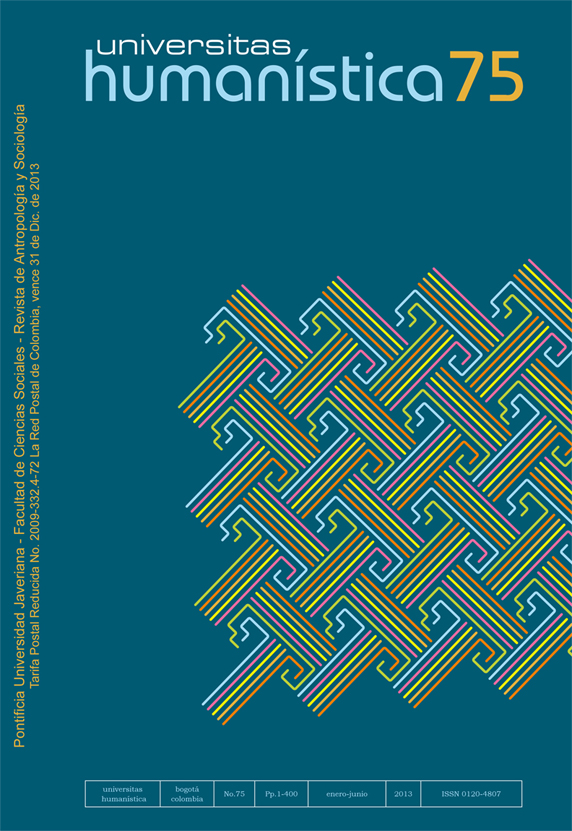Abstract
This article reflects on the new challenges that faces ethnography as writing regime aboutotherness. First of all the field work, conducted in two social spaces in the province ofSalta (Argentina), is described: a state university and an indigenous community. Then anevent that occurred in 2011 is narrated, in which one of the subjects that participated inthe study questions the author’s written production, that he did not agree with what isstated in a publication derived from the research. Lastly, it is porposes to take criticism asa turning point to think within the ethnographic work and reflect on the ways that keep the“ethnographic authority” in a context where literacy and writing synthesize the historicalstruggles of certain groups to distance themselves from the voices that others have imposed.
This journal provides immediate open access to its content on the principle that making research freely available to the public, encourages greater global exchange of knowledge.
The journal Universitas Humanística is registered under a Creative Commons Attribution 4.0 International Public License. Thus, this work may be reproduced, distributed, and publicly shared in digital format, as long as the names of the authors and Pontificia Universidad Javeriana are acknowledged. Others are allowed to quote, adapt, transform, auto-archive, republish, and create based on this material, for any purpose (even commercial ones), provided the authorship is duly acknowledged, a link to the original work is provided, and it is specified if changes have been made. Pontificia Universidad Javeriana does not hold the rights of published works and the authors are solely responsible for the contents of their works; they keep the moral, intellectual, privacy, and publicity rights.
Approving the intervention of the work (review, copy-editing, translation, layout) and the following outreach, are granted through an use license and not through an assignment of rights. This means the journal and Pontificia Universidad Javeriana cannot be held responsible for any ethical malpractice by the authors. As a consequence of the protection granted by the use license, the journal is not required to publish recantations or modify information already published, unless the errata stems from the editorial management process. Publishing contents in this journal does not generate royalties for contributors.


